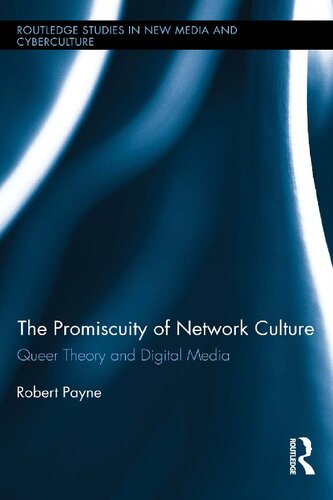

Most ebook files are in PDF format, so you can easily read them using various software such as Foxit Reader or directly on the Google Chrome browser.
Some ebook files are released by publishers in other formats such as .awz, .mobi, .epub, .fb2, etc. You may need to install specific software to read these formats on mobile/PC, such as Calibre.
Please read the tutorial at this link: https://ebookbell.com/faq
We offer FREE conversion to the popular formats you request; however, this may take some time. Therefore, right after payment, please email us, and we will try to provide the service as quickly as possible.
For some exceptional file formats or broken links (if any), please refrain from opening any disputes. Instead, email us first, and we will try to assist within a maximum of 6 hours.
EbookBell Team

5.0
20 reviewsLiking, sharing, friending, going viral: what would it mean to recognize these current modes of media interaction as promiscuous? In a contemporary network culture characterized by a proliferation of new forms of intimate mediated sociality, this book argues that promiscuity is a new standard of user engagement. Intimate relations among media users and between users and their media are increasingly structured by an entrepreneurial logic and put to work for the economic interests of media corporations. But these multiple intimacies can also be understood as technologies of promiscuous desire serving both to liberalize mediated social connection and to contain it within normative frames of value. Payne brings crucial questions of gender, sexuality, intimacy, and attention back into conversation with recent thinking on network culture and social media, identifying the queer undercurrents of these current media dynamics.